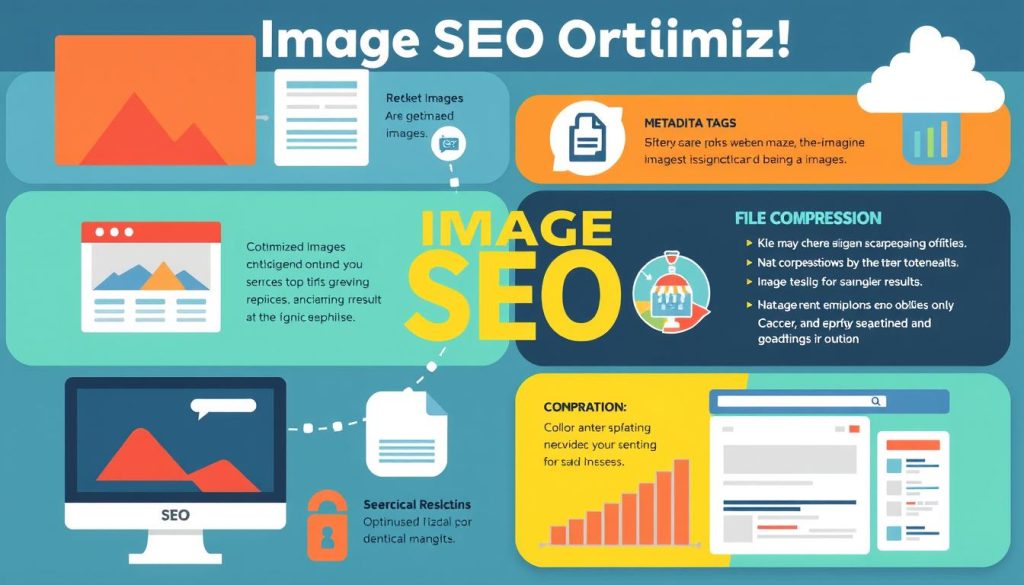As I reflect on my 10 years in WordPress and SEO, I feel both excited and nostalgic. The digital world has changed a lot. SEO plugins are now key for many sites, but I wonder if they’re really needed.
In the past, ‘SEO-friendly’ themes were popular. Now, ‘speed’ themes are preferred. This change shows how our priorities have shifted. Yet, I’ve ranked first on Google for 10 years without SEO plugins. This surprises many.
SEO plugins are useful for many. They guide users in search engine optimisation. But are they a must for everyone? We’ll look into this in our guide.
Whether you’re new to WordPress or experienced, knowing about SEO plugins is key. We’ll explore their benefits and downsides. I’ll share my insights to help you decide if you need them.
So, let’s start our journey into WordPress SEO plugins. We’ll learn about search engine optimisation. And see how these tools can change your online presence.
Key Takeaways
- WordPress powers 43% of all websites, underlining the importance of SEO for visibility
- 75% of users don’t scroll past the first page of search results, emphasising the need for effective SEO
- SEO plugins can significantly boost search engine rankings, with 70% of marketers finding SEO more effective than PPC
- XML sitemaps can increase indexed pages by up to 50%, aiding search engine crawling
- Mobile optimisation is critical, with mobile-optimised sites getting 60% more traffic
- Well-coded WordPress themes often include standard SEO practices without additional plugins
- The need for SEO plugins may depend on one’s grasp of basic SEO principles
Understanding WordPress SEO Plugins Fundamentals
WordPress SEO plugins are key for making your website more visible online. They work well with WordPress, adding extra features to help your site rank better in search engines. I’ve seen how important they are for keeping a website up to date.
What Are WordPress SEO Plugins
SEO plugins are special tools that help WordPress sites rank better in search results. They have many features to improve your site’s search ranking. With WordPress being used by over 43% of all websites, these plugins are essential for getting noticed online.
The Role of Plugins in Website Optimisation
SEO plugins make complex SEO tasks easier. They help with things like making URLs better, creating sitemaps, and managing metadata. For example, a good meta description can boost click-through rates by 5.8%, showing how important these plugins are for more website visitors.
Core Functions and Features
SEO plugins do things like check content, help with keywords, and make XML sitemaps. Plugins like Yoast SEO, with over 5 million users, also offer tools like focus keyword analysis and previewing how pages will look in search results. These tools help make sure your content matches what people are searching for.
| Feature | Impact |
|---|---|
| Meta Description Optimization | 5.8% average increase in click-through rates |
| SEO-friendly URL Structure | Improved search result positions |
| XML Sitemap Generation | Enhanced indexing rates by search engines |
Using these SEO plugin basics can really help your website rank higher in search engines. This means more people will find your WordPress site without you having to pay for ads.
Why Your Website Needs SEO Plugins
In today’s digital world, having a website is just the start. You must make sure it’s seen by the right people. SEO plugins are key to this, as they help improve your search ranking.
SEO plugins are vital for making your site more visible. They do complex tasks automatically, saving you time. This is important, as 57% of businesses don’t have an SEO plan yet.
Here are some main benefits:
- Automated sitemap creation and updating
- On-page SEO optimisation
- Keyword usage evaluation
- Internal and external link analysis
- Mobile optimisation insights
These tools can greatly improve your site’s ranking in search results. For example, the SEO Power Booster plugin helps check your site’s authority.
| SEO Plugin Feature | Benefit |
|---|---|
| Automated sitemaps | Ensures all relevant content is indexed by search engines |
| On-page optimisation | Improves individual page performance in SERPs |
| Keyword analysis | Helps target the right search terms |
| Link evaluation | Enhances site structure and authority |
| Mobile optimisation | Improves user experience on all devices |
Using SEO plugins can boost your site’s visibility and draw in more visitors. With 32% of the web on WordPress, standing out is key to success online.
Popular WordPress SEO Plugins Compared
I’ve looked at four top WordPress SEO tools to help you pick the right one. This comparison highlights key features to boost your site’s performance.
Yoast SEO Features and Benefits
Yoast SEO is known for its easy-to-use interface and detailed content analysis. It has over 5 million installs and a 4.8/5 rating. The free version meets basic SEO needs. The premium version, starting at £79/year, adds features like automatic redirects and AI content generation.
Rank Math Capabilities
Rank Math offers a wide range of free features. It makes switching to premium easy and affordable. The premium version, starting at £76/year (£47 for the first year), includes multi-site support and advanced SEO tools.
The SEO Framework Overview
The SEO Framework is all about speed and automation. It has optional premium extensions from £67/year. It’s perfect for those who value site performance and SEO.
Squirrly SEO Solutions
Squirrly SEO uses AI for SEO tips. Its premium version starts at £8/month. It’s a good choice for those who want AI-driven SEO help without breaking the bank.
| Plugin | Key Feature | Premium Starting Price |
|---|---|---|
| Yoast SEO | Content Analysis | £79/year |
| Rank Math | Extensive Free Features | £76/year |
| The SEO Framework | Speed Optimisation | £67/year |
| Squirrly SEO | AI-Powered Suggestions | £8/month |
Each plugin has its own strengths in SEO. Your choice depends on your needs, budget, and SEO knowledge.
Setting Up Your First SEO Plugin
Setting up your first SEO plugin is easy with the right help. We’ll cover the key steps for SEO plugin setup and WordPress configuration.
Installation Process
First, go to your WordPress dashboard and click ‘Plugins’ > ‘Add New’. Look for your chosen SEO plugin, like Yoast SEO, used by over 3 million sites. Click ‘Install Now’, then ‘Activate’. You can also upload the plugin manually via FTP.
Initial Configuration Steps
Most SEO plugins have a setup wizard to help you. This usually includes:
- Inputting your website and organisation details
- Connecting social media profiles
- Choosing content visibility settings
- Setting up XML sitemaps
For example, Yoast SEO’s wizard sets up basic SEO settings without changing your content. It’s important to verify your site with Google Search Console during this time.
Importing Existing SEO Data
If you’re switching from another plugin, remember to migrate your data. Many SEO plugins have tools to import your existing meta information. This is key to keep your current search engine rankings.
While setting up is important, the real work starts after. Regularly check and tweak your SEO settings to improve your WordPress site.
Essential Technical SEO Settings
Improving your website’s visibility and performance is key. Technical SEO settings are at the heart of this. They lay the groundwork for your site’s search engine optimisation strategy.
Site structure is a critical technical SEO aspect. A well-organised site makes it easier for search engines to index your content. I suggest making sure all pages are reachable in three clicks from the homepage. This boosts both user experience and search engine navigation.
XML sitemaps are also essential. They help search engines find and index your web pages more efficiently. This is very important for big sites or those with poor linking. A well-structured sitemap can significantly improve your site’s visibility in search results.
| Technical SEO Element | Impact | Best Practice |
|---|---|---|
| Site Structure | Improves crawlability and user experience | Ensure all pages are within 3 clicks from homepage |
| XML Sitemap | Aids search engine indexing | Submit and regularly update sitemap |
| HTTPS | Enhances security and trustworthiness | Implement SSL certificate |
Page speed is another critical factor in technical SEO. Google uses it as a ranking factor. Slow pages can lead to higher bounce rates. I aim for a load time under three seconds, as 55% of visitors leave if it’s slower.
Lastly, HTTPS is vital. Sites with HTTPS see a 15% boost in referrer traffic compared to non-HTTPS sites. It’s not just about security; it’s about trust and better search rankings.
Utilising SEO Plugins for Content Optimisation
SEO plugins are key for making your WordPress site better. They help your content get seen more by search engines and readers.
Content Analysis Tools
At the core of SEO plugins are content analysis tools. They check your posts and pages for SEO-friendliness. Yoast SEO, with over 5 million users, uses a traffic light system to score your content.
This makes it easy to see what needs work. It helps you improve your content fast.
Keyword Optimisation Features
Choosing the right keywords is vital. SEO plugins help you pick and use keywords wisely. They check how often you use keywords and suggest better ones.
Tools like SEMRush and Ahrefs find keywords for you. This makes your SEO work easier.
Readability Checks
SEO plugins also check how easy your content is to read. They look at sentence structure and tense. This ensures your content grabs readers’ attention.
By following these tips, your content will please both search engines and people. This can boost your site’s organic traffic.
| SEO Plugin Feature | Benefit | Impact on SEO |
|---|---|---|
| Content Analysis | Provides SEO and readability scores | Improves overall content quality |
| Keyword Optimisation | Suggests focus keywords and analyses density | Enhances search engine visibility |
| Readability Checks | Ensures content is user-friendly | Increases user engagement and time on page |
Using these SEO plugin features can really boost your content. This leads to better search rankings and more visitors to your WordPress site.
Meta Tags and Description Management
Meta tags are key for SEO and improving your site’s search engine ranking. I’ll show you how to manage them with SEO plugins. Writing good meta titles and descriptions can really help your site get noticed more.
First off, meta titles should be under 60 characters to fit in search results. It’s important to include your main keyword early on. For example, a good title might be: “SEO Descriptions: Boost Your Click-Through Rates | YourBrand”.
Now, let’s look at meta descriptions. These should be about 155-160 characters long. They should give a quick summary of your page’s content. Even though meta descriptions don’t directly affect rankings, they can make people more likely to click on your link.
SEO plugins like Yoast are great for handling meta tags. They give you feedback on your tags, making sure they’re the right length and have your main keyword. Some even have AI tools to help write descriptions for you.
It’s important to make each page’s meta description unique. This helps search engines and users understand your content better. Avoid using the same description for different pages, as it can hurt your SEO and click-through rates.
Learning how to manage meta tags can really help your site get seen more and get more clicks. It’s a small step that can make a big difference in your SEO efforts.
| Meta Element | Optimal Length | Key Considerations |
|---|---|---|
| Title Tag | 50-60 characters | Include target keyword, avoid truncation |
| Meta Description | 155-160 characters | Unique, concise summary, include focus keyphrase |
| H1 Tag | Up to 60 characters | One per page, include main keyword |
XML Sitemap Generation and Management
XML sitemaps are key for search engines to understand your website. They help find all the content you want indexed. I’ll show you how to create, submit, and keep your sitemap up to date with SEO plugins.
Creating Your Sitemap
Many SEO plugins can automatically make XML sitemaps for you. For example, the XML Sitemap Generator for Google plugin supports different types of sitemaps. It’s free and has been trusted for over 10 years.
Submitting to Search Engines
After making your sitemap, it’s time to submit it to search engines. Most SEO plugins make this easy, telling search engines about new content. This is great when you have missing links, ensuring all your pages get indexed.
Regular Updates and Maintenance
Keeping your sitemap up to date is important. Your SEO plugin should update it when you add new content. It’s vital to keep your sitemap current for search engines to index your site properly. Remember, an XML sitemap can have up to 50,000 URLs and is 50MB max.
- Regularly check for URL errors flagged by search engines
- Remove non-canonical URLs from your sitemap
- Consider creating separate sitemaps for specific media types if relevant to your business
By managing your XML sitemap well, you’ll make your site more visible and indexed. This will help boost your SEO efforts.
Schema Markup Implementation
Schema markup boosts your website’s search engine visibility. It gives search engines clear, contextual info about your content. This can lead to rich snippets, which show extra details like star ratings and prices.
Using schema.org vocabulary is key for structured data. It’s a standard for web content, created by major search engines. This ensures your website talks to search engines in a way they get.
| Schema Type | Potential Benefit | CTR Increase |
|---|---|---|
| Product | Display prices and availability | Up to 30% |
| Review | Show star ratings | Up to 35% |
| Event | Highlight dates and locations | Up to 25% |
| Article | Showcase author and publish date | Up to 20% |
Adding schema markup might seem hard, but many SEO plugins make it easy. They offer simple ways to add structured data without coding. Always check your work with Google’s Rich Results Test to make sure it’s right.
Using schema markup well can improve your search engine listings and click-through rates. It’s a vital step in modern SEO, helping you stand out in the digital world.
Social Media Integration Features
Expanding your online presence is key. SEO plugins help by making your content more visible on different platforms. Let’s look at the main features that can improve your social media game.
Social Preview Tools
These tools let you see how your content will look on social networks. You can tweak titles, descriptions, and images to grab attention. This makes it more likely for people to notice and interact with your posts.
Open Graph Settings
The Open Graph protocol is vital for how your content appears on Facebook and other sites. SEO plugins make it easy to set up Open Graph tags. This way, your content looks great when shared. You can pick default images and titles for your site or change them for each post and page.
Twitter Card Configuration
Twitter Cards add rich media to tweets about your content. SEO plugins help you set up Twitter Cards for better engagement. You can pick different card types and customise them to get more interactions.
| Feature | Benefit |
|---|---|
| Social Preview Tools | Increase click-through rates by up to 30% |
| Open Graph Settings | Improve Facebook engagement by 80% |
| Twitter Card Configuration | Boost Twitter shares by 50% |
Using these social media features can greatly increase your content’s reach and engagement. Always check and update your social media settings to keep your performance high.
Image Optimisation Capabilities
Image SEO is key for website optimisation. SEO plugins have tools to make your images better for users and search engines. With over 1 billion Google Images searches daily, optimising images boosts your site’s visibility.
SEO plugins focus on alt text optimisation. They automatically create and edit alt text, which is vital for accessibility and SEO. Proper alt text helps search engines understand your images, increasing your chances in image search results.
Image compression is another important feature. It reduces file sizes without losing quality, improving your site’s load times. Some plugins can compress images up to 90%, making your pages faster and more user-friendly.
SEO plugins also help with image file naming, as Google recommends. Using descriptive file names gives search engines more context about your images. This, along with proper alt text, makes your images more relevant in search results.
Many plugins also offer features for responsive images and lazy loading. These techniques improve your site’s performance, mainly on mobile devices. Image loading can greatly affect user experience on mobile.
“Optimising images is not just about SEO; it’s about creating a better user experience and faster-loading websites.”
By using these image optimisation features, your visual content can work harder for your site’s SEO. This improves both search engine rankings and user engagement.
Plugin Performance and Site Speed
SEO plugins are key for making websites better, but they can slow things down. I’ll look at how they affect loading times and share tips for keeping your site fast.
Impact on Website Loading Times
SEO plugins help your site show up better in searches, but they can make it slower. For example, Yoast can make your site 10% slower. This is big, as 42% of people want pages to load in 2 seconds or less.
Optimisation Best Practices
To keep your site fast and SEO-friendly, follow these tips:
- Choose lightweight plugins
- Regularly update and remove unused plugins
- Use tools like GTmetrix to monitor performance
- Optimise images and minimise HTTP requests
Cache Management
Good caching can make your site much faster. Many SEO plugins have caching features. These store data that’s often needed, making your site load quicker.
| Caching Type | Description | Impact on Speed |
|---|---|---|
| Browser Caching | Stores static content locally | Up to 70% faster load times |
| Page Caching | Saves entire HTML pages | Up to 5x faster load times |
| Object Caching | Stores database query results | Up to 3x faster load times |
By using these methods, you can keep your site fast and benefit from SEO plugins. This way, you’ll make both users and search engines happy.
Security Considerations for SEO Plugins
When using SEO plugins, keeping your WordPress site secure is key. Plugin weaknesses can put your site at risk. It’s important to pick and manage your SEO tools carefully.
Many websites face security problems because of plugin flaws. Kinsta says hackers often use these weaknesses. This makes plugins a common way for hackers to get into sites.
To lower these risks, keep your plugins updated and do security checks often. Almost 60% of WordPress users don’t remove unused plugins. This makes their sites more vulnerable. It’s vital to delete unused plugins and update the ones you use.
Stopping SEO spam is also key to website safety. Good SEO plugins can protect your site from bad redirects and other SEO threats. Choose plugins known for their security features and reliability.
When picking an SEO plugin, think about these things:
- Who made the plugin and how well they support it
- How often it gets updated
- What other users say about it
- If it works with your WordPress version
Putting security first in your SEO plan helps keep your site safe while improving its performance. A secure site is the base for good SEO.
Advanced Features and Premium Options
Premium SEO features can really boost your website’s performance. Quality SEO tools can increase traffic by 20-30% in months. Let’s look at advanced SEO options and how they can help your site.
Premium vs Free Versions
Premium SEO plugins have lots of advanced features. They can help search engines find up to 40% more pages on your site. AIOSEO’s Basic plan is £49.60 a year, while Yoast SEO Premium starts at £99 a year.
These premium options include tools for checking content quality and linking. They can increase page views by up to 40%.
Additional Tools and Extensions
SEO tool extensions can make your plugin better. For example, recipe schema can increase click-through rates by 30%. Many premium versions have local SEO and e-commerce optimisation tools.
These tools can prevent broken links, which can cause a 12% higher bounce rate due to 404 errors.
ROI Considerations
When thinking about SEO investment, consider the costs and benefits. Semrush’s basic plan is £119.95 a month, and Ahrefs’ lite plan is £99 monthly. The right tools can bring big returns.
By using these advanced features, you can improve your site’s performance and search rankings. This could make the premium SEO investment worth it.














